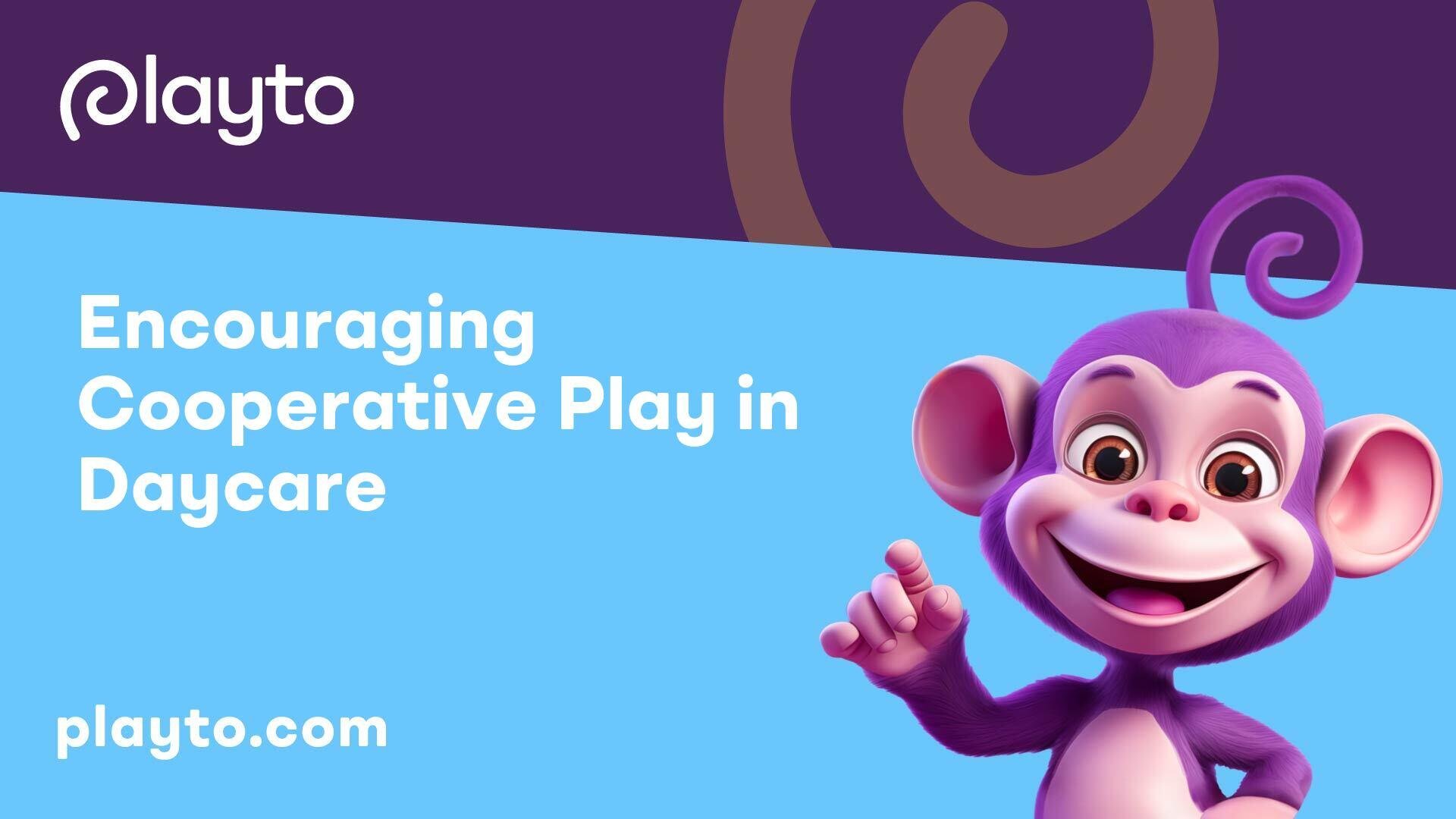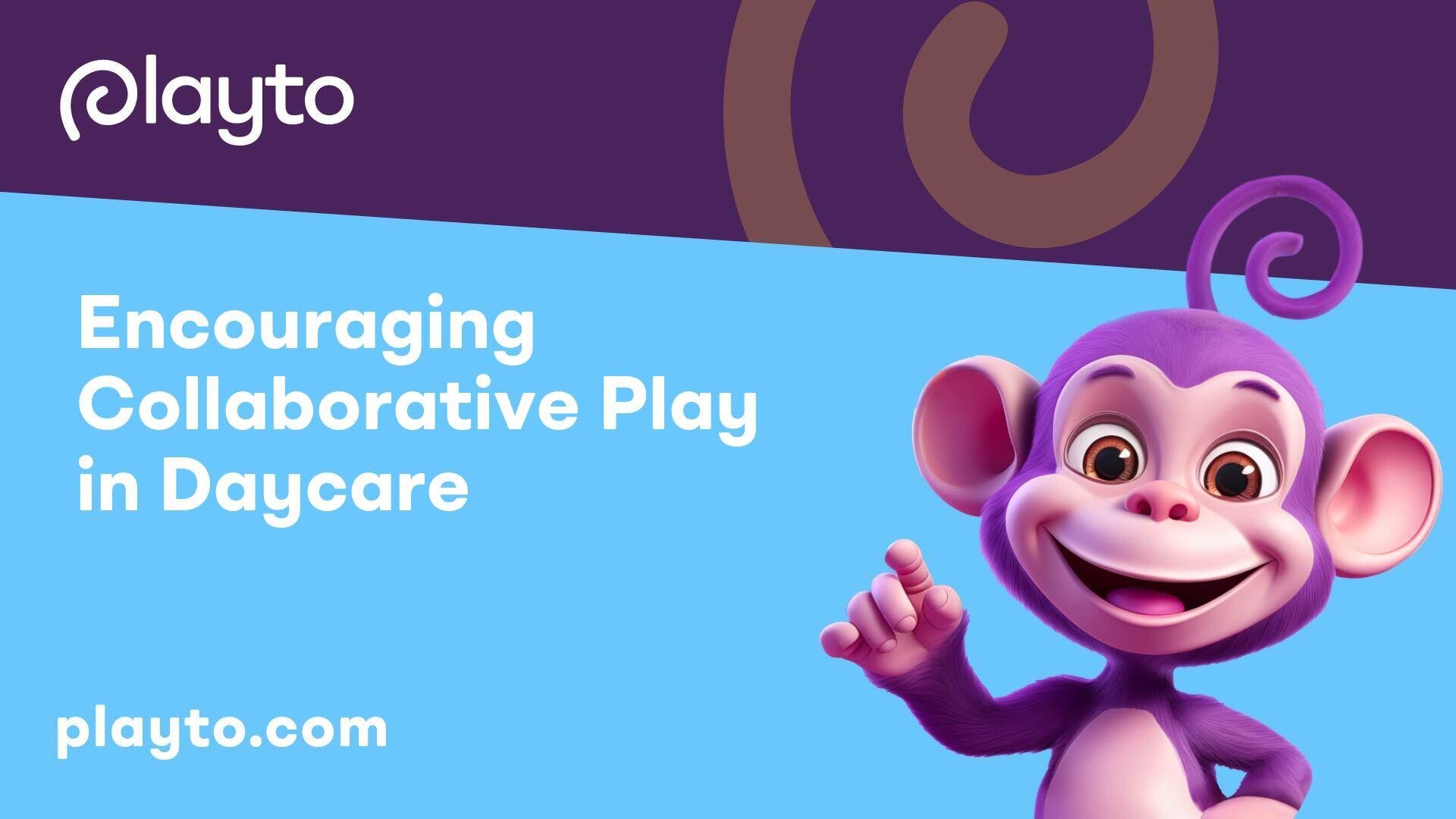
Encouraging Cooperative Play in Daycare
In a daycare setting, fostering collaborative play among children is essential for promoting social interaction, teamwork, and communication skills. Two effective ways to encourage collaborative play are through collaborative art projects and games.
Collaborative Art Projects
Engaging children in collaborative art projects is a fantastic tool to promote teamwork and cooperation in a daycare setting. Activities like creating a Finger Paint Art Mural or painting a branch together not only encourage children to work collectively but also stimulate their creativity and imagination.
Through collaborative art projects, children learn to communicate, compromise, and share ideas with their peers. This form of play not only enhances their social skills but also fosters a sense of accomplishment and pride in their joint creation.
Promoting Teamwork Through Games
Games play a crucial role in promoting collaborative play in early childhood education. By engaging children in group games, they learn to work together, follow rules, and respect each other's opinions and abilities [1]. This collaborative gameplay helps children develop important social skills such as cooperation, communication, and teamwork.
Games also provide a fun and interactive platform for children to interact with one another, building friendships and creating a sense of camaraderie within the group. The competitive yet cooperative nature of games encourages children to support each other, share resources, and celebrate collective achievements.
Integrating collaborative activities like art projects and games into the daycare curriculum not only enhances the children's cognitive and social development but also creates a positive and inclusive environment where every child has the opportunity to learn and grow through shared experiences.

Fostering Collaboration Through Music
In a daycare setting, music serves as a powerful tool to foster collaboration and teamwork among preschool children. By collaboratively creating music with a classroom rhythm set, children not only engage in a creative activity but also learn the value of working together towards a common goal. Assigning different instruments to children and encouraging them to make music collectively can help improve their teamwork skills while exploring new musical sounds.
Building with Blocks and LEGO®
Building with blocks and LEGO® sets is a classic activity that promotes collaborative play and enhances teamwork skills among children. When children engage in building structures together, they learn to communicate, share ideas, and work collectively towards a common objective. This activity not only fosters creativity and problem-solving but also encourages cooperation and coordination among peers.
Enhancing Social Skills with Dramatic Play
Dramatic play is another effective way to enhance social skills and encourage collaborative interactions among children in a daycare environment. Through dramatic play scenarios, children have the opportunity to take on different roles, communicate with their peers, negotiate roles and responsibilities, and work together to create imaginative storylines. This form of play promotes empathy, emotional intelligence, and teamwork, laying the foundation for positive socialization and relationship-building.
By engaging in activities like building with blocks, LEGO® sets, and dramatic play, children not only develop essential social and cognitive skills but also learn the value of teamwork, cooperation, and collective effort. These collaborative play experiences provide valuable opportunities for children to interact, communicate, and collaborate with their peers, fostering a sense of community and shared achievements in the daycare setting.

Understanding Cooperative Play
Cooperative play is an essential developmental milestone that children typically transition to around the age of four to five years old. At this stage, children start to grasp the concepts of role acceptance, idea exchange, toy sharing, property respect, and game rule adherence. It marks a significant shift in their social interactions and provides a foundation for future collaborative endeavors.
Transition to Cooperative Play
Children progress through various stages of play before reaching cooperative play. These stages include unoccupied play, solitary play, onlooker play, parallel play, and associative play. It is during these earlier stages that children explore different forms of play, gradually building the skills and understanding required for cooperative play [2].
Benefits of Cooperative Play
Engaging in cooperative play offers a plethora of benefits for children's social, emotional, and cognitive development. By learning to exchange ideas, assign roles, and accept their own roles during play, children enhance their communication skills and teamwork abilities. They also develop crucial social skills such as empathy, cooperation, and conflict resolution.
Moreover, cooperative play fosters a sense of belonging and community among children, laying the groundwork for strong relationships and positive interactions. Through shared experiences and collaborative efforts, children not only enhance their self-regulation and emotional management skills but also build trust and understanding within their peer groups.
Understanding the transition to cooperative play and recognizing the myriad benefits it offers can help caregivers and educators create environments that foster and support children's collaborative play experiences. By providing opportunities for children to engage in cooperative play, caregivers can nurture important social skills and facilitate meaningful interactions that contribute to the overall growth and development of young learners.
Developing Skills Through Collaboration
When children engage in collaborative play in daycare settings, they have the opportunity to develop essential skills that serve as the building blocks for their social and emotional growth. Two key aspects that are nurtured through collaboration are building trust and conflict resolution, as well as enhancing self-regulation and emotional management.
Building Trust and Conflict Resolution
Cooperative play provides a platform for children to learn the value of trust and the dynamics of conflict resolution. As they engage in play activities with their peers, they begin to trust their playmates, observe their strengths and weaknesses, offer mutual support, communicate about problems that arise during play, compromise on conflicting ideas, and collectively arrive at solutions that are acceptable to everyone.
Ensuring that children feel safe to express their opinions, share their ideas, and navigate disagreements constructively fosters a sense of trust among peers. Teaching children to respect diverse perspectives, listen actively, and work together towards common goals lays the foundation for healthy relationships and effective conflict resolution skills in their future interactions.
Enhancing Self-Regulation and Emotional Management
Within the realm of cooperative play, children have the opportunity to develop self-regulation skills by managing their emotions in diverse play scenarios. They learn to cope with disappointments, practice patience, take turns in activities, and apply these self-regulation skills to various aspects of their lives [4].
Through collaborative play, children are exposed to situations that may evoke strong emotions such as joy, frustration, excitement, or disappointment. Learning to navigate these emotions within a supportive environment helps children recognize and regulate their feelings effectively. By understanding their own emotions and empathizing with the emotions of others during play interactions, children cultivate essential emotional management skills that contribute to their overall socio-emotional development.
By prioritizing opportunities for children to engage in collaborative play experiences that emphasize trust-building, conflict resolution, self-regulation, and emotional management, daycare providers can effectively support the holistic development of children in their care. Encouraging positive social interactions, promoting empathy, and fostering a culture of cooperation within the daycare environment lay the groundwork for children to thrive socially and emotionally as they progress through their early childhood experiences.
Strategies for Effective Cooperative Play
In a daycare setting, promoting collaborative play among children is essential for fostering social skills, teamwork, and empathy. Two key strategies that can significantly enhance cooperative play are creating inclusive environments and encouraging peer interactions.
Creating Inclusive Environments
Building inclusive environments for children of all abilities is crucial for promoting collaborative play. According to the NAEYC, inclusive environments involve active engagement among children and adults with and without disabilities in collaborative interactions and joint learning experiences. These inclusive settings should be present in all early learning environments, ensuring that every child feels welcomed, valued, and able to participate.
To create inclusive environments, daycare providers can make environmental modifications that cater to the diverse needs of children. This may include providing a variety of sensory materials, offering seating options for different comfort levels, and ensuring that play areas are accessible to all children, regardless of their abilities. By fostering inclusivity, daycare centers can promote a sense of belonging and mutual respect among children, laying the foundation for successful collaborative play.
Encouraging Peer Interactions
Encouraging peer interactions is key to nurturing cooperative play in daycare settings. According to the NAEYC, social interactions for children with varying abilities are most meaningful when child-directed interactions are actively promoted. Teachers play a critical role in facilitating peer interactions by creating opportunities for children to engage with one another, collaborate on activities, and learn from one another's strengths and differences.
To encourage peer interactions, daycare providers can organize group activities that require children to work together towards a common goal. This may involve collaborative art projects, team-based games, or dramatic play scenarios that promote communication, problem-solving, and cooperation. By fostering positive peer relationships and celebrating diversity, daycare centers can help children develop essential social skills and a sense of community.
By implementing these strategies for effective cooperative play, daycare providers can create enriching environments where children feel empowered to collaborate, communicate, and connect with their peers. Inclusive spaces and supportive peer interactions not only enhance the quality of play experiences but also contribute to the overall social and emotional development of children in early childhood settings.
Importance of Family Engagement
In daycare settings, fostering collaboration and involvement with families is essential for creating a supportive and enriching environment for children. Establishing open communication channels and collaborating with community organizations are key components in promoting family engagement in daycare.
Establishing Open Communication Channels
Effective communication between daycare providers and families is vital for maintaining transparency, building trust, and ensuring the well-being of the children. Schools should adopt multiple communication channels like newsletters, email updates, websites, and social media platforms to keep families informed and connected.
By establishing open lines of communication, daycare centers can encourage family involvement through volunteer programs, advisory committees, and embracing cultural diversity. This approach fosters meaningful engagement and collaboration between parents and educators, leading to a more supportive and inclusive learning environment.
Collaboration with Community Organizations
Collaborating with community organizations, local businesses, and utilizing technology like online portals can significantly expand the resources available to families. By forming partnerships outside the daycare setting, families can access valuable learning opportunities beyond the classroom, enriching their engagement with their child's education [5].
Moreover, leveraging technology such as online portals, mobile applications, and video conferencing tools can create convenient and accessible communication platforms. These tools enable families to stay connected, track their child's progress, access information easily, and communicate with teachers effectively. By providing easy access to information and fostering ongoing dialogue, daycare centers can enhance family engagement and collaboration.
By prioritizing open communication channels and partnerships with community organizations, daycare settings can strengthen the connection between families and educators, creating a supportive network that promotes the well-being and development of children. Such collaboration not only benefits the children directly but also enhances the overall daycare experience for families, educators, and communities alike.
Supporting Play in Early Childhood Settings
In early childhood settings, designing learning environments that are engaging and inclusive plays a pivotal role in promoting collaborative play among children. Educators must create spaces that cater to children's diverse abilities and needs, fostering an environment that encourages interaction and participation.
Designing Learning Environments
The physical-social-temporal environment of a daycare significantly influences children's development and learning. By intentionally designing and adapting the learning environment based on children's assets and strengths, educators can enhance engagement and responsiveness. Inclusive environments that promote collaborative interactions and joint learning experiences are essential for encouraging play among children of all abilities.
One effective strategy for supporting children with varying abilities is through environmental modifications like visual schedules, gestural cues, picture cards, and buddy systems. These adaptations help facilitate engagement and inclusion in activities such as circle time and play, ultimately creating a more inclusive environment that promotes collaboration and participation.
Encouraging Choice-Making in Play
Encouraging choice-making during play is a fundamental aspect of fostering independence and engagement among children. It is essential to distinguish between free play and "free for all" play, as structured periods of physical activity and playful learning can integrate social routines, encourage positive engagement, and minimize challenging behaviors in young children.
To promote choice-making, practitioners play a crucial role in providing opportunities for children to select from well-planned and varied learning activities. By creating an environment that supports play and adapting their roles based on observation and flexibility, educators can empower children to make choices that align with their interests and abilities, fostering collaboration and interaction among peers.
By focusing on designing inclusive learning environments and promoting choice-making in play, early childhood settings can create a conducive space for collaborative play, social interaction, and skill development among children of all abilities.
Adult Support for Children's Play
When it comes to fostering collaborative play in daycare environments, adult support plays a crucial role in shaping children's interactions and enhancing their overall play experiences. In this section, we will explore two key aspects of adult support: co-exploring with children and facilitating and scaffolding play.
Co-Exploring with Children
Teachers and daycare providers should embrace the spirit of play alongside children, serving as co-explorers in their imaginative worlds. By actively engaging in play experiences with children, adults can gain valuable insights into the children's interests, preferences, and developmental needs. This collaborative approach not only strengthens the bond between adults and children but also fosters a sense of trust and mutual respect.
By co-exploring with children, adults create a supportive and nurturing environment where children feel comfortable taking risks, expressing their creativity, and exploring new ideas. This collaborative play dynamic encourages children to experiment, problem-solve, and engage in imaginative play scenarios, leading to valuable learning experiences and personal growth.
Facilitating and Scaffolding Play
In addition to actively participating in play activities, adults should also take on the role of facilitators and scaffolders, guiding children through their play experiences and providing the necessary support and encouragement. Facilitating play involves creating opportunities for cooperative play, guiding interactions between children, and promoting communication and teamwork.
Scaffolding play refers to the process of offering assistance and support to children as they engage in challenging or complex play tasks. Adults can provide prompts, ask open-ended questions, offer suggestions, and model positive play behaviors to help children navigate obstacles, build their skills, and deepen their understanding of the play experiences.
By collaborating with children in their play endeavors, adults play a vital role in nurturing caring relationships, encouraging risk-taking, celebrating achievements, and fostering resilience in young learners. This interactive and supportive approach to adult-child play interactions not only enriches the play experiences but also promotes holistic development and social-emotional growth in children.
References
[2]:
[3]:
[4]:
[5]:
[6]:
